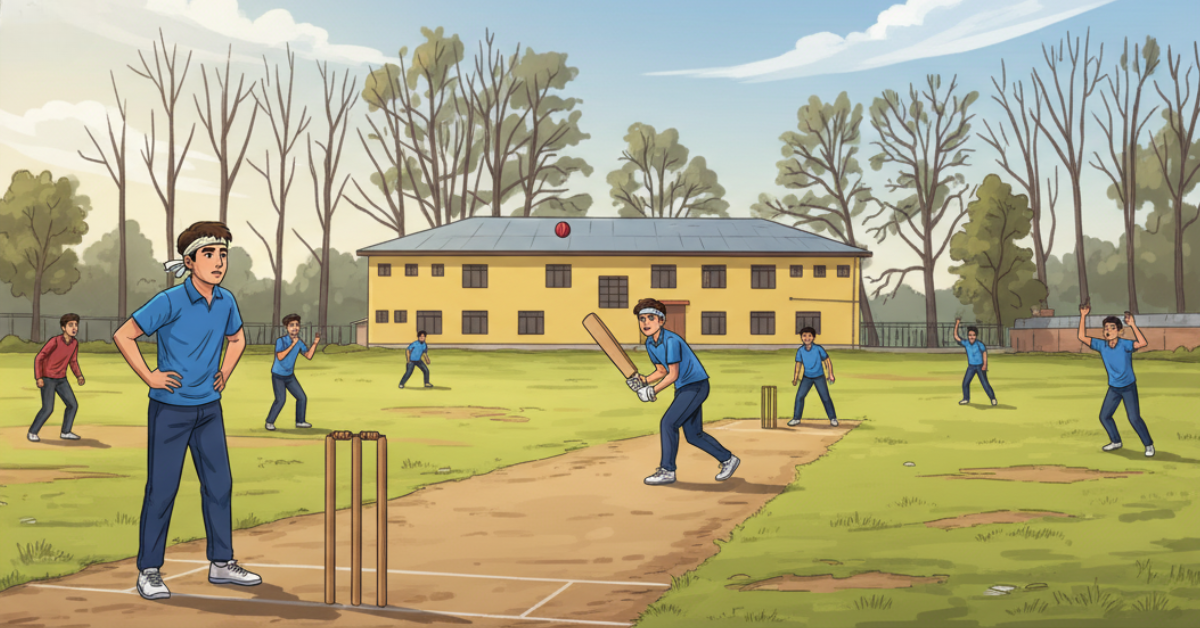The cool mountain air was broken by the sharp sound of a bat hitting the ball just right. Once, twice, three times, the ball flew over the boundary for a six. The young bowler, sweating in his first match, could only watch as his shoulders dropped with each big hit. Then came two more boundaries. The cheers from the side slowly turned into something different. A group of teens nearby started shouting something new, words that wouldn't have made sense a few years ago: "Aura negative! Aura negative!"
For anyone over the age of 25, the chant might have been confusing. But for the kids on that field and watching from the grass, the meaning was crystal clear. The bowler hadn't just had a bad over; in their eyes, he was losing his cool, his confidence, his social currency. This moment, on a local cricket pitch in Kashmir, is a perfect window into the new language of Gen Z, a language born on the internet that now shapes their real-world interactions.
The main word here is "aura," which Gen Z has repurposed. It no longer means a spiritual energy field. Today, "aura" is the vibe or presence a person gives off. It’s the confidence in their walk, the charm in their smile, that special something that makes them stand out. If someone says you have "aura," it's a big compliment.
This concept has been playfully turned into a social game built around "aura points." Impressive actions earn you points. A brilliant catch, a witty comeback, or even wearing a great outfit can give you a boost. The opposite, however, is what the young bowler experienced. An embarrassing or awkward moment results in a loss of points, landing you with "negative aura." It's a modern, gamified way of describing success and failure, a social scoreboard that is constantly being updated.
This slang has its own ecosystem of terms. You might hear about someone "aura farming," which means they are deliberately trying to do cool things to boost their status. Or they might be "auramaxxing," a term for trying to maximize their personal aura through their looks and actions.
But aura is just one word in a rapidly growing dictionary. You might hear a friend agree to plans by saying, "Bet." A person who is effortlessly charming and flirty is said to have "rizz." To emphasize that you're telling the absolute truth, you might add, "no cap." These terms are part of a shared global language for a generation that has grown up on the internet.
This slang ecosystem even describes mindsets. If your friend has unrealistic hopes, you might gently tease them for being "delulu," short for delusional. This term has become so common that the phrase "delulu is the solulu" (delusion is the solution) is a popular, ironic mantra for staying optimistic against the odds.
The most fascinating part of this story is not the word itself, but where it was spoken. The language of aura was born on global platforms like TikTok and Instagram and in the communities of online gaming, where players would ironically rate the coolness of characters and celebrities. The fact that this word traveled from a phone screen to a cricket field in Kashmir says something profound about youth culture today.
It shows that a young person in the Valley is part of the same cultural conversation as a teenager in London or Tokyo. They consume the same memes, share the same online jokes, and adopt the same slang. The internet has erased many of the old geographical boundaries of culture, creating a shared global identity for Gen Z. This new language isn't just a trend; it's a sign of a generation that lives with one foot in the digital world and one in the physical, seamlessly blending the rules and vocabulary of both.
For the young bowler, the sting of those sixes was likely made worse by that very modern taunt. He wasn't just being heckled in the old-fashioned way; he was being judged by a new set of rules, a new language that measured his confidence and declared it, for that one difficult over, to be in the negative.
